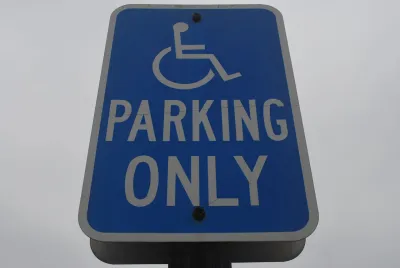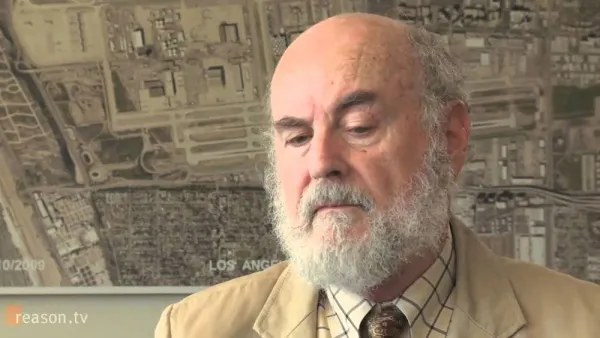The fine for misuse of a placard will increase considerably, but not everyone agrees this is the right way to address a growing problem.

The Los Angeles City Council recently voted to raise the fine for misuse of disabled placards from $250 to $1,100. The placards allow users to park free and for an unlimited amount of time in metered spaces, and abuse is rampant. The practice means that people who need access to disabled parking spaces often cannot find available spots.
But the focus on enforcement and fines is not a universally accepted strategy. Fernando Torres-Gil and Donald Shoup at UCLA say limiting the number of placards handed out would be a more effective tactic, reports Sonja Sharp:
The so-called two-tier system would divide California’s current placard holders — roughly 2.5 million people, or about 6% of the population — into those with severe mobility impairments and those whose disabilities are less physically limiting, shearing the latter class of many of their existing protections.
But many disability rights advocates do not support this approach, arguing that it stems from the perception that disabilities are always obvious and that many people who have placards do not deserve them. "The obsession with fraud creates a 'culture of harassment' for people who may not fit the public image of disability — wheelchair users who also walk, gym-rat amputees and young mothers with multiple sclerosis and infant seats in their cars," notes Sharp.
Supporters of the tiered system say that the majority of individuals considered disabled under the Americans with Disabilities Act do not have severe mobility impairments. As a result, the status of those who do receive placards would be legitimized under the more stringent standards.
FULL STORY: L.A. quadruples the fine for disabled-placard fraud, but will it help?

Analysis: Cybertruck Fatality Rate Far Exceeds That of Ford Pinto
The Tesla Cybertruck was recalled seven times last year.

National Parks Layoffs Will Cause Communities to Lose Billions
Thousands of essential park workers were laid off this week, just before the busy spring break season.

Retro-silient?: America’s First “Eco-burb,” The Woodlands Turns 50
A master-planned community north of Houston offers lessons on green infrastructure and resilient design, but falls short of its founder’s lofty affordability and walkability goals.

Test News Post 1
This is a summary

Analysis: Cybertruck Fatality Rate Far Exceeds That of Ford Pinto
The Tesla Cybertruck was recalled seven times last year.

Test News Headline 46
Test for the image on the front page.
Urban Design for Planners 1: Software Tools
This six-course series explores essential urban design concepts using open source software and equips planners with the tools they need to participate fully in the urban design process.
Planning for Universal Design
Learn the tools for implementing Universal Design in planning regulations.
EMC Planning Group, Inc.
Planetizen
Planetizen
Mpact (formerly Rail~Volution)
Great Falls Development Authority, Inc.
HUDs Office of Policy Development and Research
NYU Wagner Graduate School of Public Service




























